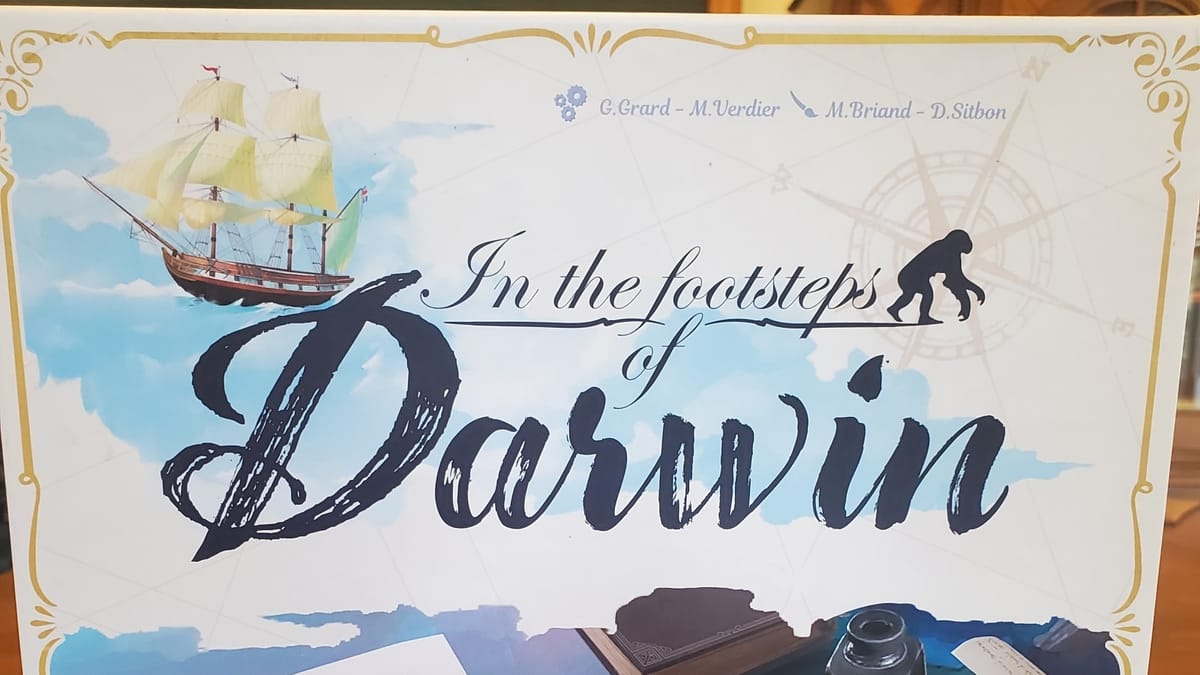
Like ancient Rome, Darwinism seems too weighty for light fare, but Rise of Augustus (“Bingo, mighty Caesar!”) and now In the Footsteps of Darwin prove that no topic’s too dignified to become a cute puzzle. On a box bearing his name, however, the likeness of the crusty English biologist himself is strangely absent. It’s not too difficult to see why. Charles Darwin may have the beard of Santa Claus, but his wizened face can’t sell the cardboard equivalent of Pokemon Snap.
Under the lid, there’s an appendix dedicated to Darwin’s travels, epistles, and discoveries. The other side of the board illustrates the Beagle’s voyage in beautiful detail. Its publisher, the adorably named “Sorry We Are French,” cares about the topic and, through some breezy gameplay, wants to put butts in seats—even if it’s not confident that it can keep them there.
Players fill the shoes of assistants laboring in the field, bringing entries about various animals to Darwin for inclusion in his landmark text, On the Origin of the Species. They draft from a 3 x 3 grid of creature tiles, scoring victory points primarily by completing sets based on scientific class (arthropod, mammal, bird, or reptile) or country of origin (e.g. South America). The position of Darwin’s ship, the H.M.S. Beagle, limits their choices to the three in the Beagle’s row or column and their selection will determine where the Beagle ends up next, so Footsteps’ tension comes from maximizing your gains and spotting opportunities to hinder others.
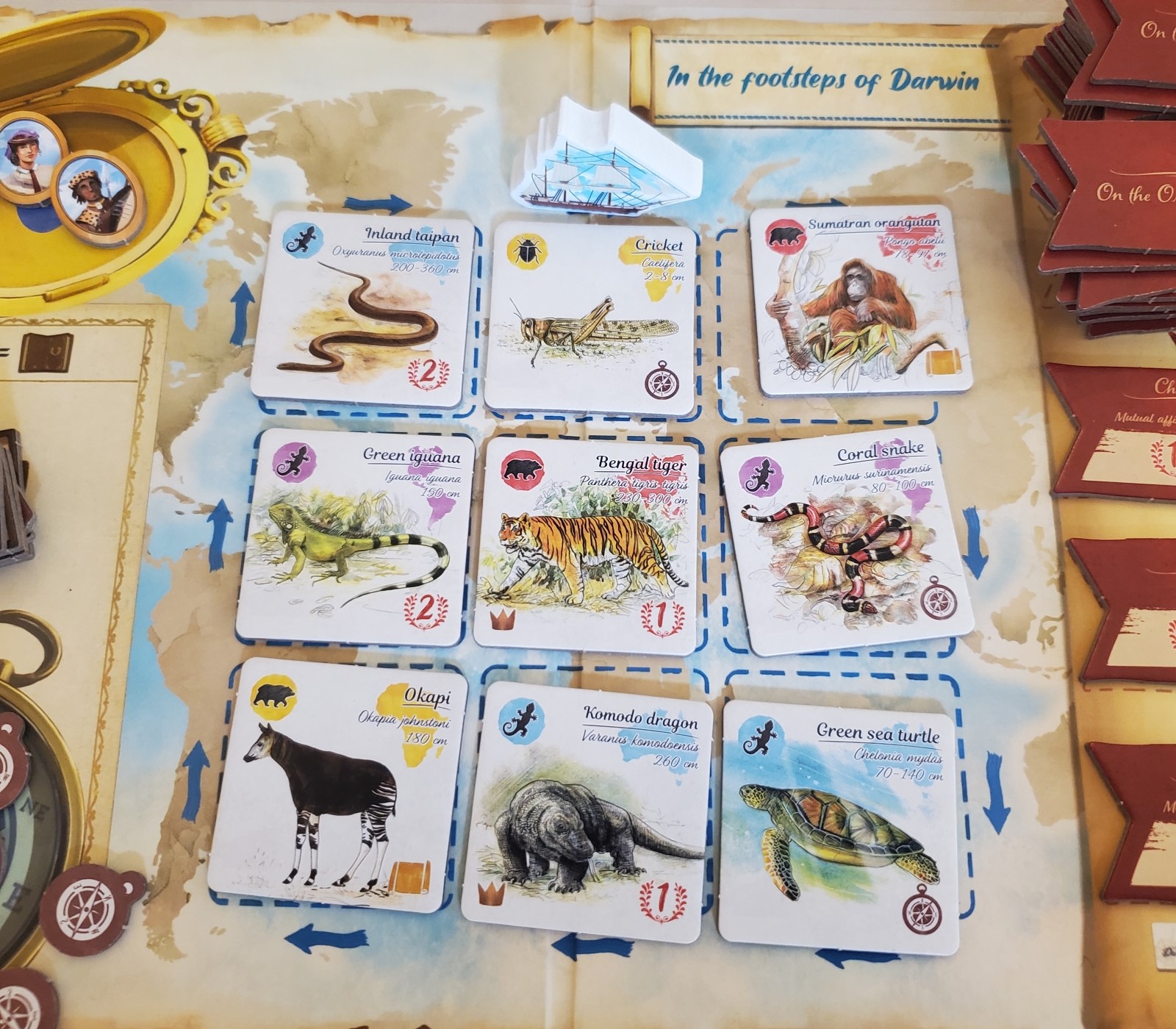
Functionally, it feels like scrapbooking, and it turns out that’s not such a bad quality for a drafting game to have. Everyone places the same number of tiles (12) and the simplicity of the set collection—class (symbol) or continent (color)— makes it easier to jostle the next person in line. It’s simple to assess someone else’s board across the table, see what they’re building, and react. That’s a factor many titles in this genre fail to consider.
To Footsteps’ credit, that jostling never deepens into the spite of drafting games like, say, Nevermore. But that scrapbook simplicity applies to your own tableau, too, and sometimes constructing it can feel flat. This especially holds true at two players.
A few gameplay elements add dimension and texture. Some critters have end-of-game bonuses. Completing sets awards 5 VP chits called publications. A few special tiles provide guides, which, when spent, can shift the Beagle toward juicier tiles or replace the three in front of you. Grabbing a duplicate tile (same class and continent) may cost points in the short-term, but it grants access to minor powers and more end-game scoring options.
These pack enough muscle onto Footsteps to avoid the dreaded label of “edutainment,” though its potential to arouse curiosity within a budding scientist may be its best attribute. Effectively, the player boards demonstrate the linkages between habitat, form, and function which bind natural selection together. Sorry We Are French has not, unlike others, skimped on art; tasteful pastels and a big catalogue of beasties inspire an appreciation for our shared home.
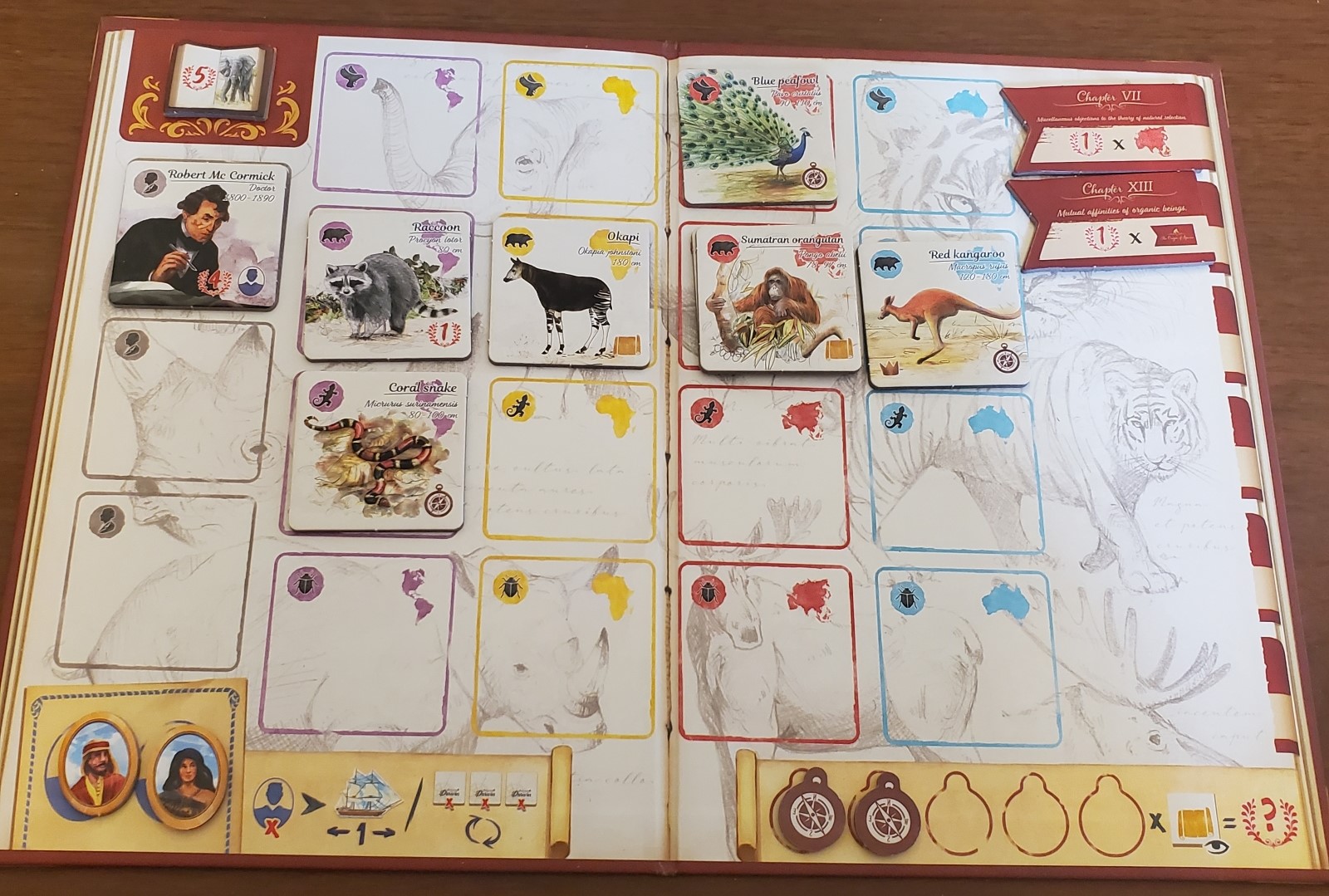
Despite all these positives, the package feels somewhat . . . dated in a way that’s difficult to articulate. That “30 min.” stamp on the box could account for it.
Similar to how Love Letter (2012) represented a breakthrough in ludic miniaturization technology, each game taking downwards of eight minutes, Splendor (2014) minted a strange gold standard for the tightest use of thirty minutes. Some, myself included, found it too cold to love. Still, its economy and form deserve admiration. Splendor fills that time so fluidly and consistently that everything in its weight class (Century: Spice Road, Gizmos, Space Base, etc.) experiences a comparison to either Splendor itself or its many disciples.
These pack enough muscle onto Footsteps to avoid the dreaded label of “edutainment,” though its potential to arouse curiosity within a budding scientist may be its best attribute.
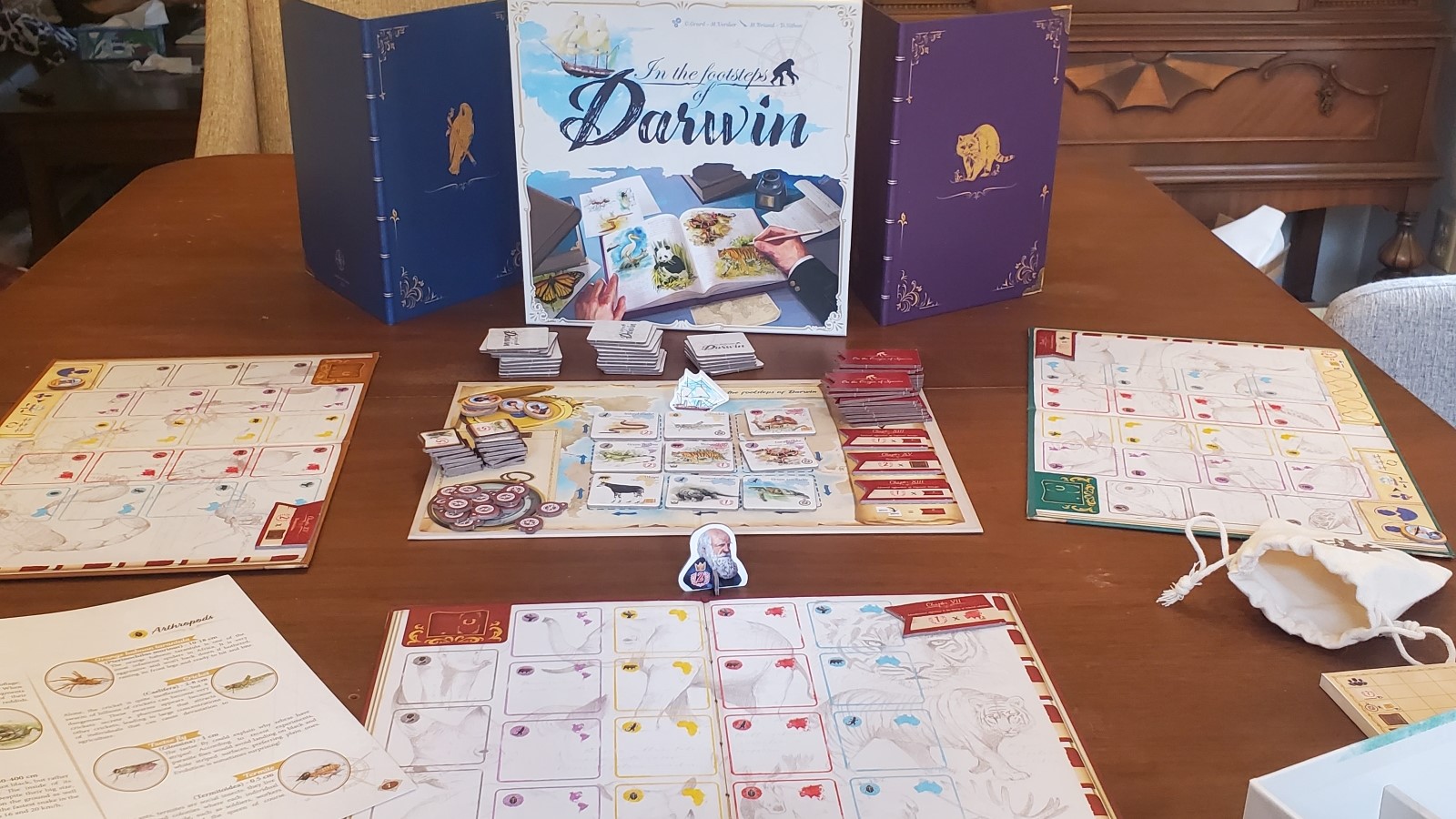
Footsteps doesn’t look good in that light. There are the outward blemishes, such as a lack of tiebreakers. Post-2010, at least three should precede “rejoice in your shared victory.” Forgive those and it still plays too loose for that aforementioned muscle to whip it into competitive shape. It needs more substance than end-of-game goals can furbish.
That’s where its educational aspects can inject some value. Like HABA’s titles, its charms exclude no one. Additionally, for any parent who wants their child to memorize the names of real world animals with the same zeal they apply to a Pokedex, it might just do the trick.
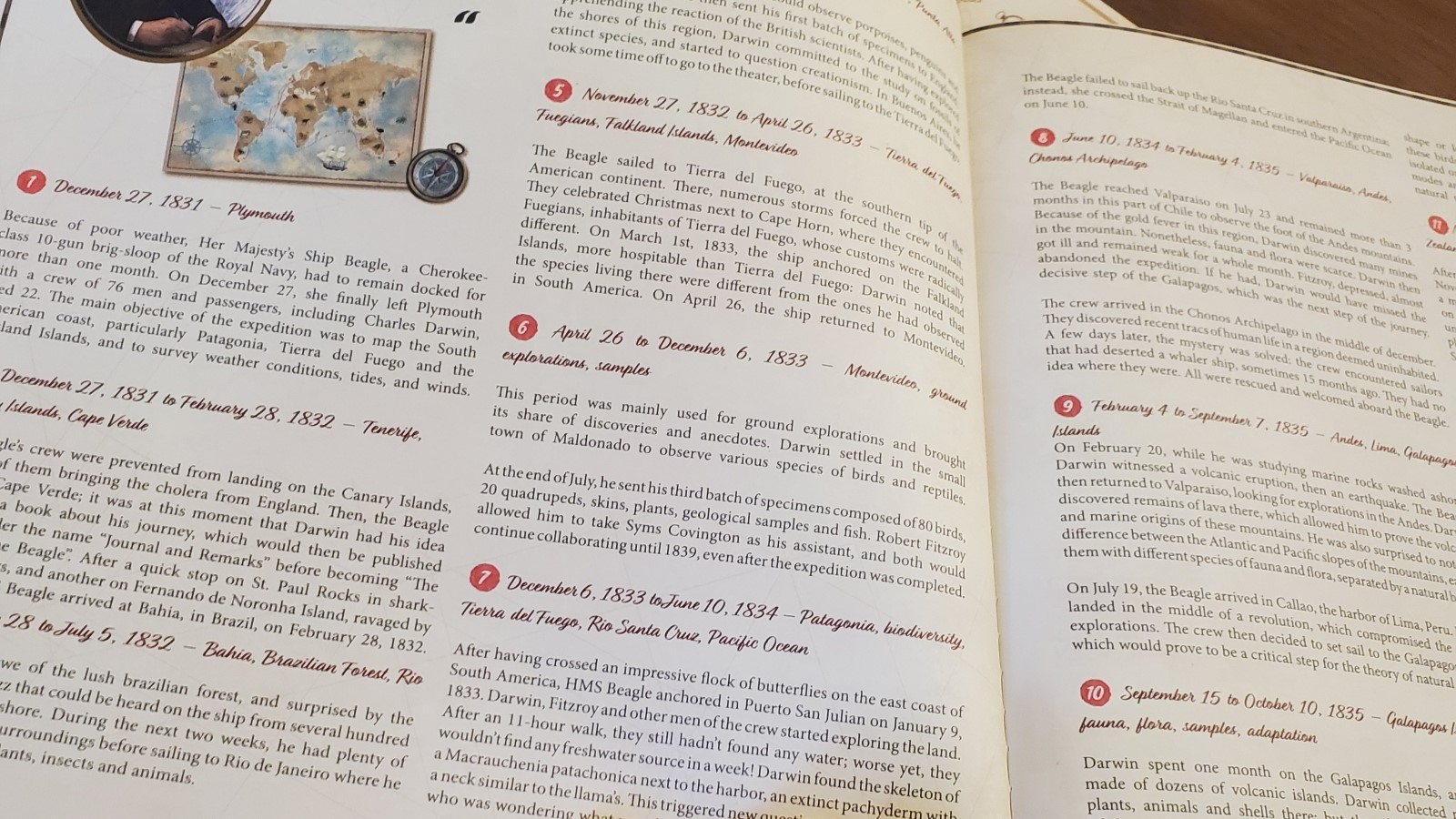
In the Footsteps of Darwin
All Right
In the Footsteps of Darwin may not carve out a place in an experienced gamer's collection, but it could find a home with families enthusiastic about the natural world.
Pros
- Gorgeous presentation.
- Accessible.
- Higher level of player interaction.
Cons
- Not quite robust enough for experienced gamers.
- A tad too much point salad.
- "Rejoice in your shared victory."
